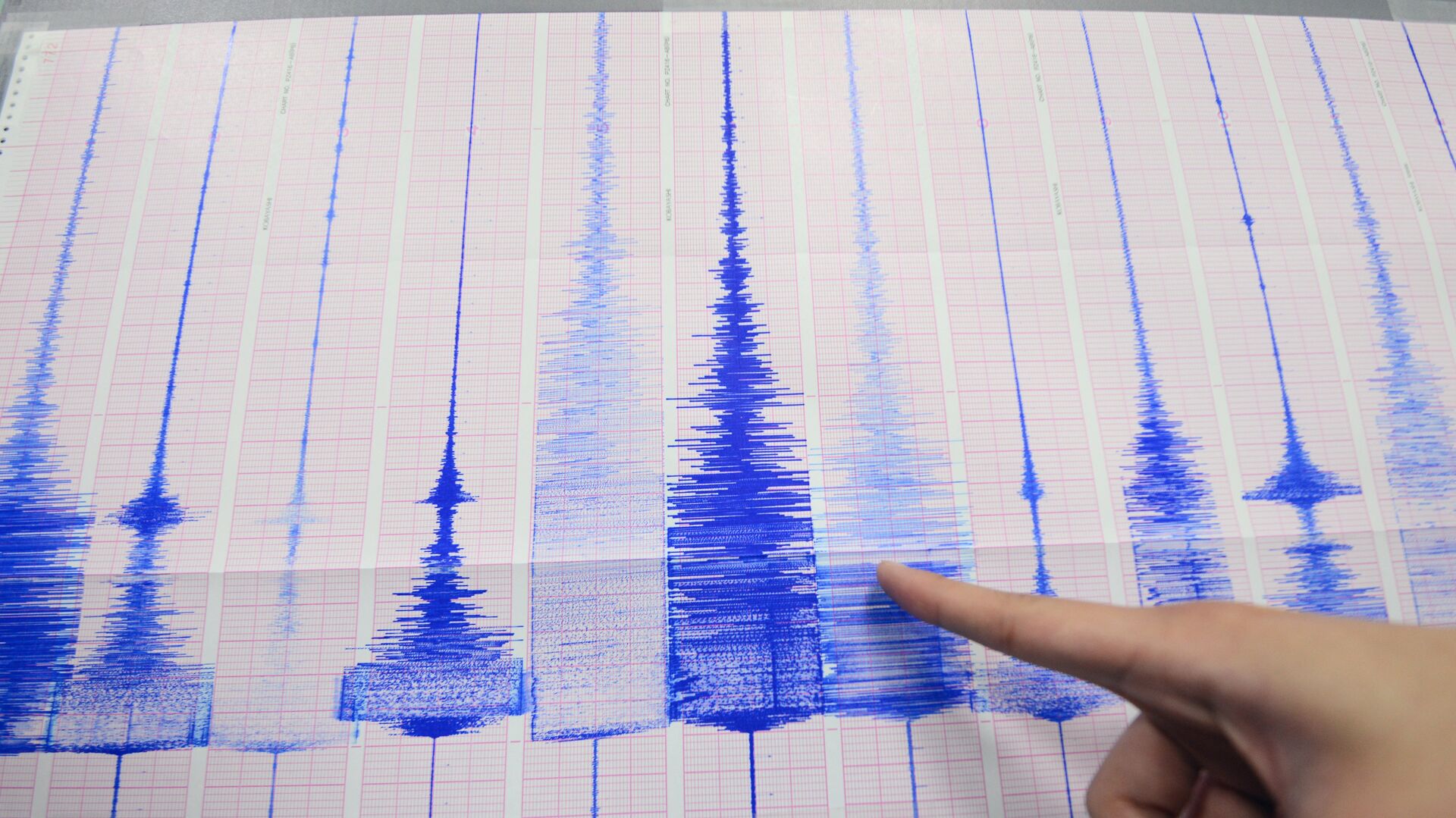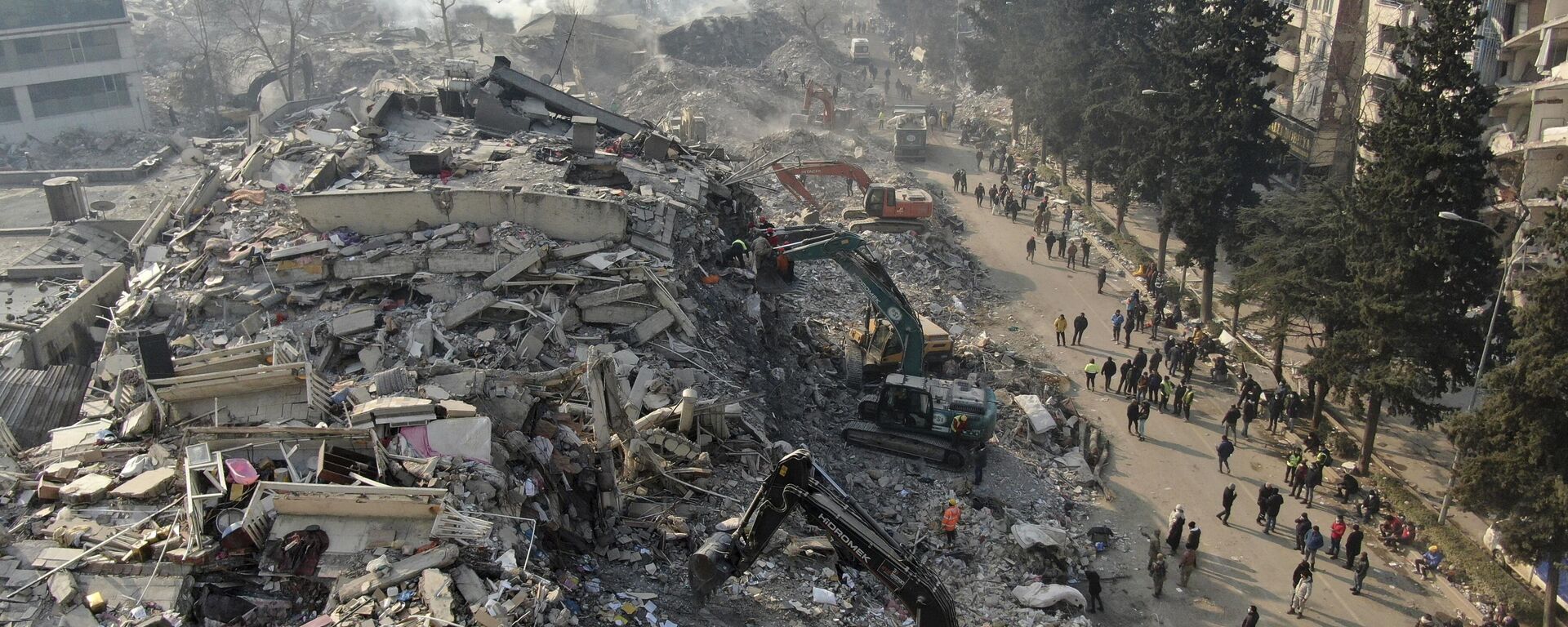https://sputnikglobe.com/20230722/how-gps-tech-may-help-predict-earthquakes-one-day-1112055992.html
How GPS Tech May Help Predict Earthquakes One Day
How GPS Tech May Help Predict Earthquakes One Day
Sputnik International
While current technology would have to be 50 times more sensitive to enable their theory, the scientists discovery opens a new door in predicting earthquakes.
2023-07-22T04:20+0000
2023-07-22T04:20+0000
2023-07-22T04:18+0000
beyond politics
science & tech
earthquakes
gps
measurement
study
https://cdn1.img.sputnikglobe.com/img/102111/25/1021112584_0:689:6043:4088_1920x0_80_0_0_059f626fb7373c41f264072e45c44676.jpg
A eyebrow-raising scientific find has laid down the groundwork for officials to maybe one day pinpoint when an earthquake may strike, all by tapping on GPS measurements.Quentin Bletery and his colleague Jean-Mathieu Nocquet used a dataset from the University of Nevada at Reno in the United States for their study. Across the globe, thousands of stations record their GPS positions every five minutes and that dataset can show seismologists the slightest motions in the Earth’s ground movements.The scientists looked at areas where known earthquakes with magnitudes of 7.0 or higher had occurred, and analyzed the data within a 48-hour window leading up to the moment the quake struck, then, testing their theory, predicted what the earthquake would look like based on the dataset.About two hours before each quake event, Bletery and Nocquet found their predictions began to show accuracy, and as the earthquake approached so did the team's ability to pinpoint the reading.“Earthquakes are sudden slips along faults that separate two tectonic blocks,” Nocquet explained.“In fact, our study suggests that the slip accelerates progressively over a few hours, around two,” he adds.While this discovery certainly opens doors for seismologists who hope to someday predict earthquakes, current GPS technology is not sensitive enough to give an accurate forecast.In fact, that technology would need to be 50 times more sensitive to be able to detect an earthquake before it happens. The scientists also admitted they were unable to predict about half the earthquakes they analyzed.Julián García Mayordomo, an earthquake geology expert at Spain’s Geological and Mining Institute (IGME) explained that as the technology currently stands, there are simply far too many variables shifting underground to be able to pick up signs with absolute certainty.“Large earthquakes occur 10 to 15 kilometers (6 to 9 miles) deep in the Earth’s crust, where we have never been able to look. In addition, a major fault that produces earthquakes on the order of 6.5 or 7 is a plane that can be tens of kilometers long by 15 kilometers deep. It is a huge area where many geological processes occur,” he said.However, Bletery and Nocquet’s discovery did indicate earthquakes are not entirely as chaotic as previously thought. During their tests, officials found a cycle which preceded the magnitude 9.0 earthquake Tohoku-Ohi, which caused a devastating tsunami off the coast of Japan in 2011. Examining the GPS data of that area, they determined their predictions were accurate more than two hours before the quake struck. Additionally, GPS readings appeared to repeat in cycles of roughly every 3.6 hours, a find that has since opened new questions for seismologists.The findings were published Thursday in the journal Science.
https://sputnikglobe.com/20230322/top-5-earthquakes-that-caused-death-destruction-and-nuclear-disasters-around-the-globe-1108693157.html
https://sputnikglobe.com/20230713/powerful-earthquake-and-tsunami-will-likely-hit-istanbul-in-decade---seismologists-1111853581.html
Sputnik International
feedback@sputniknews.com
+74956456601
MIA „Rossiya Segodnya“
2023
News
en_EN
Sputnik International
feedback@sputniknews.com
+74956456601
MIA „Rossiya Segodnya“
Sputnik International
feedback@sputniknews.com
+74956456601
MIA „Rossiya Segodnya“
science, earthquake, technology
science, earthquake, technology
How GPS Tech May Help Predict Earthquakes One Day
Predicting earthquakes has been a seemingly impossible goal for seismologists for decades. But two researchers from France may be one step closer to reaching that goal.
A eyebrow-raising scientific find has laid down the groundwork for officials to maybe one day pinpoint when an earthquake may strike, all by tapping on GPS measurements.
Quentin Bletery and his colleague Jean-Mathieu Nocquet used a dataset from the University of Nevada at Reno in the United States for their study. Across the globe, thousands of stations record their GPS positions every five minutes and that dataset can show seismologists the slightest motions in the Earth’s ground movements.
“Conceptually, that tells you that it is possible to do it. That's a huge step," said
Quentin Bletery, a seismologist at the Institut de Recherche pour le Développement and the Université Côte d'Azur in France.
The scientists looked at areas where known earthquakes with magnitudes of 7.0 or higher had occurred, and analyzed the data within a 48-hour window leading up to the moment the quake struck, then, testing their theory, predicted what the earthquake would look like based on the dataset.
About two hours before each quake event, Bletery and Nocquet found their predictions began to show accuracy, and as the earthquake approached so did the team's ability to pinpoint the reading.
“Earthquakes are sudden slips along faults that separate two tectonic blocks,” Nocquet explained.
“The precursor phase is the time window during which the tectonic blocks begin to move relative to each other, first slowly and then accelerating progressively to finally reach a rapid sliding velocity. Rapid sliding produces the seismic waves that cause the damage observed during major earthquakes."
“In fact, our study suggests that the slip accelerates progressively over a few hours, around two,” he adds.
While this discovery certainly opens doors for seismologists who hope to someday predict earthquakes, current GPS technology is not sensitive enough to give an accurate forecast.
In fact, that technology would need to be 50 times more sensitive to be able to detect an earthquake before it happens. The scientists also admitted they were unable to predict about half the earthquakes they analyzed.
Julián García Mayordomo, an earthquake geology expert at Spain’s Geological and Mining Institute (IGME)
explained that as the technology currently stands, there are simply far too many variables shifting underground to be able to pick up signs with absolute certainty.
“Large earthquakes occur 10 to 15 kilometers (6 to 9 miles) deep in the Earth’s crust, where we have never been able to look. In addition, a major fault that produces earthquakes on the order of 6.5 or 7 is a plane that can be tens of kilometers long by 15 kilometers deep. It is a huge area where many geological processes occur,” he said.
“It is absolutely impossible to control. There are too many variables, which makes the phenomenon highly unpredictable."
However, Bletery and Nocquet’s discovery did indicate earthquakes are not entirely as chaotic as previously thought. During their tests, officials found a cycle which preceded the magnitude 9.0 earthquake Tohoku-Ohi, which caused a devastating tsunami off the coast of Japan in 2011.
Examining the GPS data of that area, they determined their predictions were accurate more than two hours before the quake struck. Additionally, GPS readings appeared to repeat in cycles of roughly every 3.6 hours, a find that has since opened new questions for seismologists.
The findings were
published Thursday in the journal Science.




